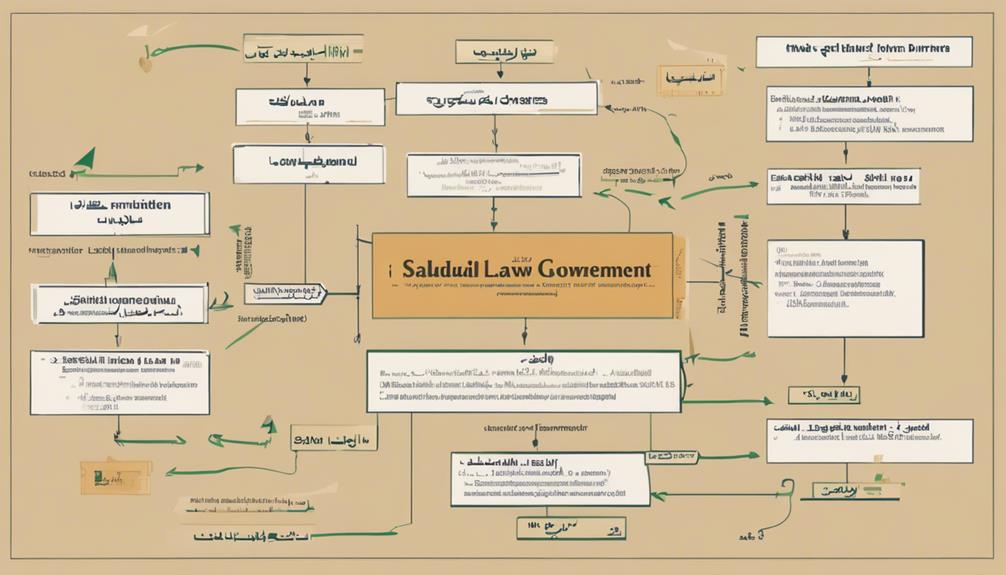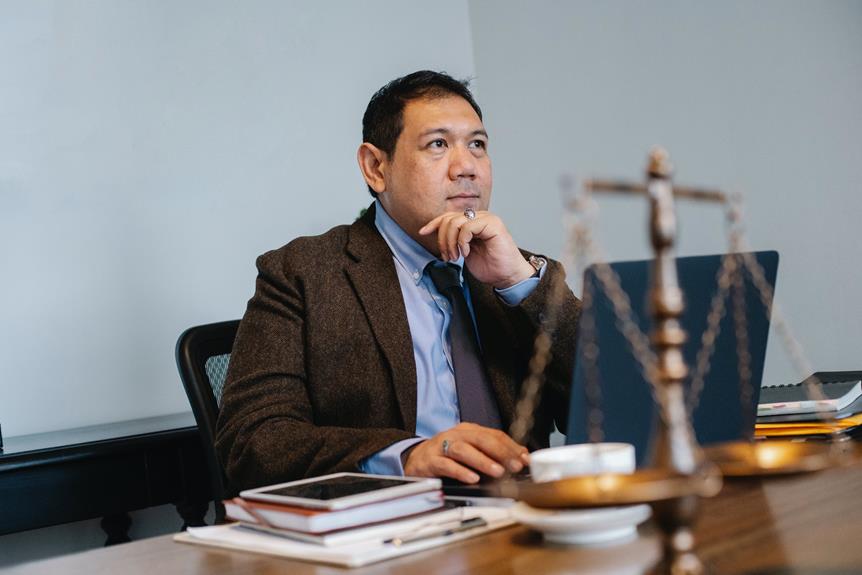Navigating the legal landscape of Saudi Arabia can be a complex endeavor, especially for those new to the intricacies of its legal system. Understanding the laws, procedures, and cultural nuances is essential for individuals seeking to operate within the boundaries of Saudi law.
From the intricacies of Sharia law to the practicalities of legal procedures, a beginner's guide can shed light on the essential aspects that individuals need to grasp to navigate this unique legal framework effectively. Whether you are a resident, expatriate, or business owner, having a foundational understanding of Saudi law is crucial for a smooth and compliant experience in the Kingdom.
Legal System Overview

When delving into the complexities of navigating Saudi law, it is essential to first grasp an understanding of the legal system's foundations and structure. The court structure in Saudi Arabia is hierarchically organized, with the Supreme Court at the top, followed by the Court of Appeals, and then the primary courts. Each court has its jurisdiction over specific types of cases, ensuring a systematic judicial process.
The judicial process in Saudi Arabia is based on Islamic law, known as Sharia. Judges in the Saudi legal system are well-versed in Sharia and apply its principles when making decisions. Trials are conducted in Arabic, and it is crucial for individuals involved in legal proceedings to have a proficient understanding of the language or seek translation services.
In Saudi Arabia, legal proceedings prioritize fairness and justice according to Islamic law. Understanding the court structure and the judicial process is fundamental for anyone engaging with the Saudi legal system to navigate it effectively and ensure their rights are protected.
Cultural Considerations
In navigating Saudi law, understanding cultural considerations is paramount for effectively engaging with the legal system. Saudi Arabia places a strong emphasis on customs and etiquette, which play a significant role in interactions, including those within the legal realm. Respect for traditions and social norms is crucial when dealing with legal matters in the country.
Language and communication also hold great importance in Saudi culture. Arabic is the official language, and while many legal documents may be available in both Arabic and English, having a basic understanding of Arabic can be beneficial. When communicating with legal professionals or authorities, it is essential to be clear and concise in your language.
Moreover, maintaining a polite and respectful demeanor is highly valued in Saudi society. Simple gestures such as greeting others with 'As-Salamu Alaykum' and showing deference to elders or officials can go a long way in building positive relationships within the legal community. By embracing these cultural considerations, individuals can navigate the Saudi legal system with greater ease and understanding.
Key Legal Procedures

Understanding the key legal procedures is essential for individuals navigating the Saudi legal system. Legal documentation plays a crucial role in Saudi law, as it serves as evidence in court proceedings. To initiate legal actions or defend against them, proper legal documentation must be prepared and submitted according to the regulations set forth by the Saudi legal system.
Court proceedings in Saudi Arabia are structured and follow a specific process. Parties involved must adhere to the rules of the court and present their cases in a clear and concise manner. In Saudi courts, it is important to have legal representation, as the legal system can be complex and daunting for those unfamiliar with it.
Moreover, understanding the timeline of court proceedings is vital, as delays can impact the outcome of a case. Individuals navigating the Saudi legal system must be prepared for the various stages of court proceedings and ensure they meet all deadlines and requirements to effectively present their case.
Rights and Responsibilities
Navigating the Saudi legal system entails a comprehensive understanding of the rights and responsibilities individuals hold within the framework of Saudi law. In Saudi Arabia, individuals are subject to both legal obligations and entitled to certain individual freedoms.
Legal obligations encompass adhering to Islamic law, respecting the country's cultural norms, and complying with regulations governing areas such as business practices, family matters, and public conduct. Failure to fulfill these obligations can result in legal consequences.
On the other hand, individuals in Saudi Arabia also enjoy specific rights and freedoms, such as the right to practice their religion, freedom of expression within the boundaries of the law, and the right to seek education and work. It is essential for residents and visitors alike to be aware of these rights and responsibilities to ensure they navigate the Saudi legal system effectively and maintain compliance with the law.
Understanding the balance between legal obligations and individual freedoms is crucial for fostering a harmonious coexistence within Saudi society.
Resources for Legal Assistance

For individuals seeking legal assistance in Saudi Arabia, accessing reliable resources is essential to effectively navigate the legal system and address any legal concerns. Legal Aid is a crucial resource available to those who may not have the financial means to hire a private attorney. The Saudi Ministry of Justice provides Legal Aid services to eligible individuals, offering them access to legal representation and advice.
Consultation services are also valuable resources for individuals seeking legal assistance in Saudi Arabia. Law firms and legal consultants can provide expert guidance on various legal matters, helping individuals understand their rights and obligations under Saudi law. These services are particularly beneficial for expatriates or foreign nationals who may not be familiar with the intricacies of the Saudi legal system.
Frequently Asked Questions
How Are Legal Disputes Typically Resolved in Saudi Arabia?
Legal disputes in Saudi Arabia are typically resolved through a mediation process where a neutral third party facilitates negotiations between the conflicting parties. If mediation fails, the dispute may proceed to court procedures for resolution.
Can Foreigners Easily Access Legal Assistance in Saudi Arabia?
Foreigners in Saudi Arabia can access legal assistance through law firms specializing in international clients. While navigating the legal system may pose challenges due to cultural differences, expats have rights to legal representation for various matters.
What Are the Common Penalties for Violating Saudi Laws?
Violating Saudi laws can result in severe criminal consequences including imprisonment, fines, and even deportation for foreigners. Cultural considerations play a significant role in determining repercussions, with penalties varying based on the nature of the offense committed.
Are There Any Specific Laws or Regulations Regarding Social Media Usage in Saudi Arabia?
In Saudi Arabia, strict internet regulations govern social media usage. Online censorship is prevalent, with the government monitoring platforms for content that violates societal norms or religious beliefs. Users should be cautious to protect their privacy.
How Does Sharia Law Influence the Legal System in Saudi Arabia?
Sharia law significantly influences the legal system in Saudi Arabia, serving as the foundation for legislation and guiding various aspects of governance. Its impact is evident in family law, criminal justice, and societal norms, shaping the country's legal dynamics.
Conclusion
In conclusion, understanding the legal system in Saudi Arabia is essential for navigating the complex laws and cultural norms of the country.
By familiarizing oneself with key legal procedures, rights, and responsibilities, individuals can better protect their interests and avoid potential legal pitfalls.
Cultural considerations play a significant role in legal matters, and seeking resources for legal assistance can provide valuable support in ensuring compliance with Saudi law.










